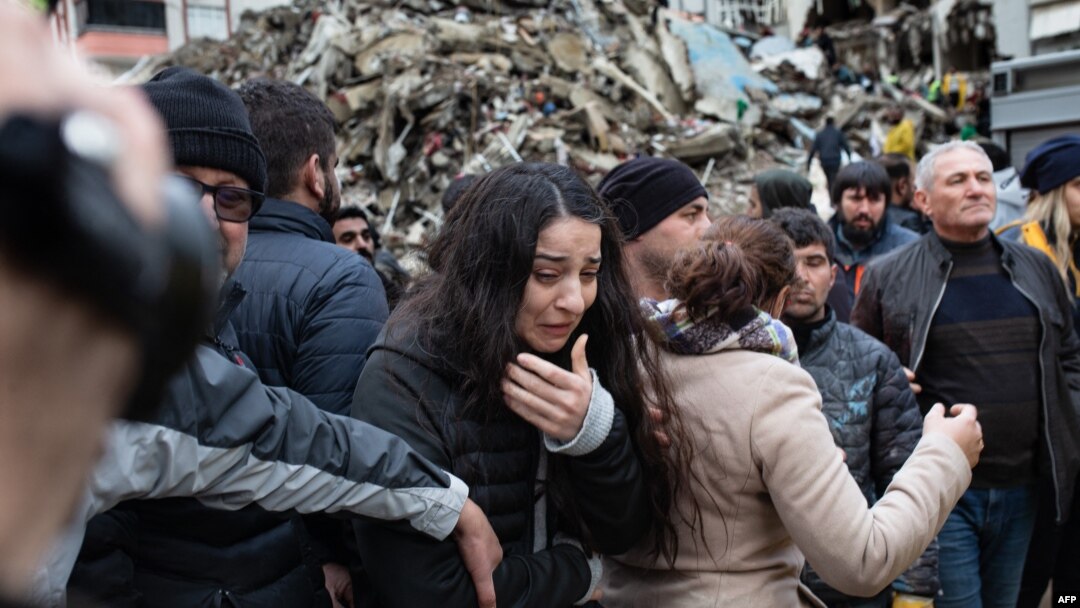Erdogan, who faces an election in May, said on a visit to the disaster zone that operations were now working normally and promised no one would be left homeless, as the combined death toll across Turkey and neighboring Syria climbed above 11,500 , according to Reuters.
Agence France-Presse reported a higher death toll: 9,057 people had died in Turkey and 2,662 in Syria from Monday's 7.8-magnitude tremor, bringing the total to 11,719.
Rescuers there and in neighboring Syria warned that the death toll would keep rising as some survivors said help had yet to arrive.
Rescuers were still digging out some people alive, and finding others dead. But many Turks have complained of a lack of equipment, expertise and support to rescue those trapped - sometimes even as they could hear cries for help.
Survivors have in some cases watched helplessly as their relatives called for rescue, and eventually went silent under the debris.
"My nephew, my sister-in-law and my sister-in-law's sister are in the ruins. They are trapped under the ruins and there is no sign of life," said Semire Coban, a kindergarten teacher, in Turkey's Hatay.
"We can't reach them. We are trying to talk to them, but they are not responding... We are waiting for help. It has been 48 hours now," she said.
Survivors are also struggling with the cold weather and the need for food and other necessities.
"Where are the tents, where are food trucks?" said Melek, 64, in the southern Turkish city of Antakya, adding that she had not seen any rescue teams.
"We haven't seen any food distribution here, unlike previous disasters in our country. We survived the earthquake, but we will die here due to hunger or cold here."
Turkish authorities say some 13.5 million people were affected in an area spanning roughly 450 km from Adana in the west to Diyarbakir in the east - broader than the distance between Boston and Philadelphia, or Amsterdam and Paris.
In Syria, it killed people as far south as Hama, some 100km from the epicenter.
Rescue workers have struggled to reach some of the worst-hit areas, held back by destroyed roads, poor weather and a lack of resources and heavy equipment. Some areas are without fuel and electricity.
Aid officials voiced particular concern about the situation in Syria, where humanitarian needs were already greater than at any point since the eruption of a conflict that has partitioned the nation and is complicating relief efforts.
Syria on Wednesday made an official plea to the EU for help after the deadly earthquake that struck it and Turkey this week, the bloc's commissioner for crisis management said.
The European Commission is "encouraging" EU member countries to respond to Syria's request for medical supplies and food, while monitoring to ensure that any aid "is not diverted" by the sanctioned government in Damascus, Janez Lenarcic said.
In Syria, a rescue service operating in the insurgent-held northwest said the number of dead had climbed to more than 1,280 and more than 2,600 were injured.
"The number is expected to rise significantly due to the presence of hundreds of families under the rubble, more than 50 hours after the earthquake," the rescue service said on Twitter.
The head of the World Health Organization has said the rescue efforts face a race against time, with the chances of finding survivors alive slipping away with every minute and hour.
This report was compiled from Reuters and Agence France-Presse


